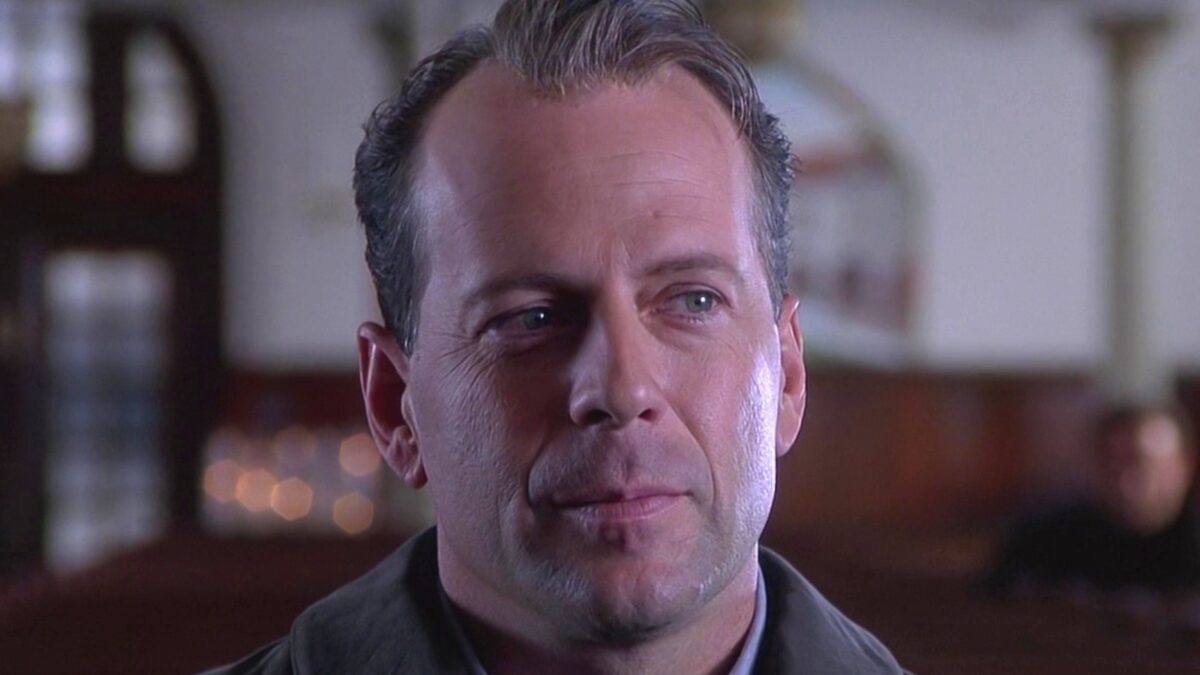Bruce Willis’ Aphasia Diagnosis, Explained

Bruce Willis is one of the most recognizable actors in Hollywood, boasting a career that spans decades. He became one of the biggest action stars in the world, but before that, Willis started his career on stage, Off-Broadway. He got his big break with a lead role in the dramedy series Moonlighting. Since then, he has appeared in over 100 film and TV projects. However, he’s particularly recognized for his roles in action films, such as the Die Hard and Red film series.
Willis’ career has garnered him many accolades, as well. He boasts a Golden Globe Award, two primetime Emmy Awards, and a star on the Hollywood Walk of Fame. More recently, Willis has appeared in a number of direct-to-video films—a number of these releasing in 2022, including Die Like Lovers, Vendetta, and The Wrong Place. Counting his upcoming 2022 releases, Willis will have starred in 15 films between 2021-2022.
However, on March 30th, 2022, Willis’ family took to Instagram to share the news that he is retiring from acting. His family revealed that Willis has been suffering from health issues, including a recent diagnosis of aphasia. Due to the disorder impacting his cognitive abilities, Willis has chosen to step away from his acting career.
Willis’ retirement has been met with much support and well wishes. While fans will certainly miss seeing him on screen, his retirement marks the end of an incredible career. However, many are concerned about what this diagnosis, aphasia, might mean.
What is aphasia?
Aphasia is a neurological condition that primarily impacts one’s ability to communicate. Roughly 180,000 Americans are diagnosed with aphasia each year, and it is more common than Parkinson’s Disease, cerebral palsy, or muscular dystrophy. Individuals diagnosed with aphasia lose their ability to speak, as well as to understand language. Additionally, the condition impacts written communication, making reading and writing difficult.
Symptoms of aphasia might be difficulty in finding the words one wants to say, saying made-up words, saying the wrong words, or difficulty forming sentences. One may also struggle to understand what other people are saying, particularly if they speak fast or use longer sentences. Additionally, one may have trouble reading, spelling, and using numbers and math.
What causes aphasia and can it be treated?
Willis’ family, at this time, has not revealed the cause behind Willis’ aphasia. However, aphasia is usually caused by damage to the portions of the brain that deal with language. Hence, aphasia often impacts individuals who have suffered a stroke. However, the disorder can also be the result of a head injury. Additionally, it can come on slowly due to the presence of a brain tumor, an infection, or disease.
There is no cure for aphasia, however, speech and language therapy can help individuals regain or improve their ability to communicate. Speech therapy is generally the primary treatment for aphasia. It can help those with the condition regain language abilities, or to learn to communicate in different ways. Some people with aphasia can almost fully regain their abilities, however, the longer the symptoms last, the more unlikely a full recovery is.
How to support someone with aphasia
What individuals need to know about aphasia, is that it is a disorder that impacts language. Aphasia does not impact intelligence. Those who suffer from aphasia still have the same thoughts and ideas, however, it is their ability to access these thoughts and ideas through language that is disrupted. Aphasia can erroneously be confused with Alzheimer’s or other such disorders, but it is very different. It is often necessary for relatives and friends of someone with aphasia, to learn new communication methods, as well. Communicating with someone who has Aphasia requires patience, new ways of communication, and finding effective environments for communication.
While Willis’ announcement may be the first time one has heard of aphasia, it currently impacts 2 million Americans.
(image featured: Buena Vista Pictures)
Have a tip we should know? tips@themarysue.com